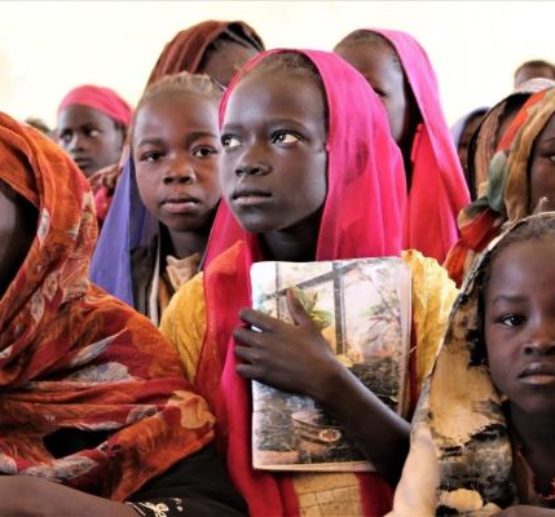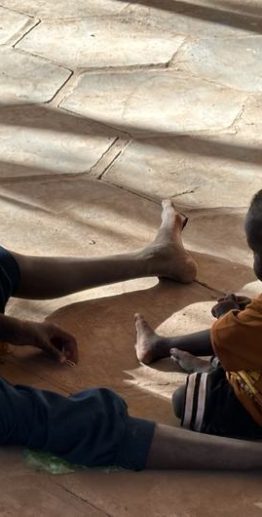The UNSC and Darfur: A Test of the World’s Conscience
The widespread tumult afflicting various crisis areas has preoccupied the United Nations Security Council’s (UNSC) agenda of late. From the civil wars in Syria and Ukraine to the negotiations over Iran’s nuclear program, the world powers that have permanent seats at the UN’s highest organ have spared no time in jockeying for their interests. Yet an issue that may not keep the foreign ministers of each UNSC member up at night is also an urgent one: renewing the mandate of the joint African Union (AU) and UN peacekeeping mission in Darfur, which is set to expire at the end of the month.
The UN-AU peacekeeping Mission in Darfur, also known as UNAMID, was authorized three years after a unanimous vote in the U.S. Congress declared the Janjaweed’s campaign in Darfur genocide. The UN Security Council (UNSC) adopted Resolution 1769 on July 31, 2007, formally establishing the peacekeeping mission with a core mandate of protecting civilians.
International peacekeeping missions are often deplored for their narrow mandates and limited ability to enforce terms of peace, yet UNAMID has proven more ignominious than most. Seven years after its initial deployment, the hybrid force has become enmeshed in perpetual controversy. Atrocities committed by various militia groups cease to wane, yet more troubling than its inability to deal with the violence is the mission’s history of partiality towards Khartoum and its proxies, illustrated by various cover-ups of heinous human rights abuses. The initial authorization of UNAMID made provisions for a deployment of 27,000 personnel, but restrictions imposed by the Sudanese government have limited the mission’s ability to fulfill its mandate in its entirety. Moreover, UNAMID has continually underreported the scale of human rights abuses in Darfur, with estimates of the number of those displaced, killed or raped consistently differing from reports on the ground. Furthermore, UNAMID has demonstrated its reticence to go after government-backed forces operating inside Darfur, allowing the genocide to continue unabated. Finally, the mission has failed to adequately protect its own personnel, with 216 fatalities as of June 2015.
In an article published in Foreign Policy, UNAMID’s former spokeswoman, Aisha Elbasri, outlines an instance in which UNAMID and other UN agencies misled the public as to what was happening in Darfur. Following reports of clashes in Tawila, an area in northern Darfur, Elbasri sought information from UNAMID officials to relay to the press. She was told that the situation was calm, with team site commanders describing armed militias leaving the area. However, upon deploying a verification mission to Tawila, she discovered that the information given by UNAMID officials was false. Government forces had in fact attacked four villages inhabited predominantly by Fur and Zaghawa ethnic groups, and subsequently raped multiple women, assaulted civilians, and destroyed several farms, forcing thousands to flee. Unfortunately, these types of incidents are common and have been thoroughly documented by credible sources inside Darfur. Read more here: http://foreignpolicy.com/2014/04/09/we-cant-say-all-that-we-see-in-darfur/
In addition to these troubling developments, Khartoum now insists that UNAMID’s mandate, due for renewal on June 30th, be abolished. It wants all peacekeeping forces out of the country, and has faced limited international opprobrium for its position. With Western leaders preoccupied with the widespread upheaval in the region, Sudanese President Omar al-Bashir is hedging his bets that the UNSC will turn a blind eye.
International humanitarian law mandates that when states fail to protect their populations from mass atrocities, as is the case in Sudan, the international community has an obligation to protect citizens from human rights abuses. Given the ongoing atrocities in Sudan, perpetuated by the international community’s incompetent response, Darfur Women Action Group (DWAG) believes the world citizens must hold its leaders accountable and remind them of their legal and moral obligations under the doctrine of Responsibility to Protect. Faced with heinous war crimes and crimes against humanity, world leaders cannot simply turn a blind eye to Darfur’s suffering.
DWAG demands that the UNSC ensures that UNAMID and various other UN bodies operating inside Sudan no longer be subordinate to Khartoum’s dictates and instead have the ability to feasibly execute their stated mandates. The United States is the largest contributor to the UN as well as UNAMID’s operating budget and hence possesses the leverage necessary to hold both the UN and the Sudanese government accountable. Moreover, we also urge the UNSC to exercise its power and disallow the withdrawal of the peacekeeping mission despite Khartoum’s objections. In the event that UNAMID is decommissioned, an alternate international protection force must be deployed prior to UNAMID’s departure.
To leave millions of Darfuris at the mercy of government-sponsored rape and death squads would be another unconscionable act of abandonment, only this time with the consent of the international community.
To show your support for the people of Darfur, sign this petition to the UN: https://www.change.org/p/united-nations-security-council-don-t-abandon-the-people-of-darfur-and-renew-unamid-s-mandate



